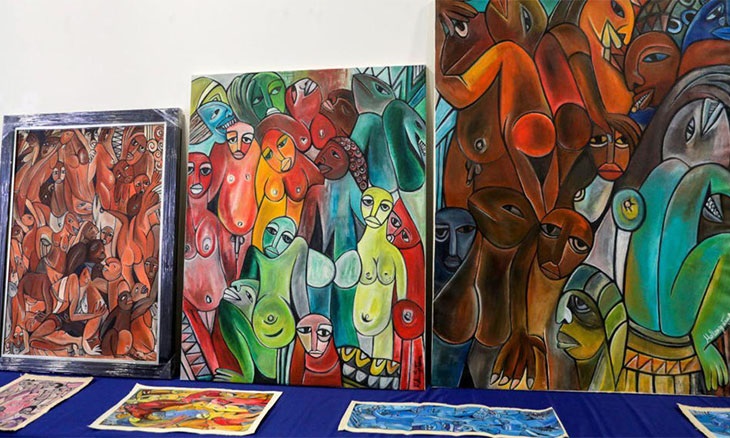Mozambican band 'Kapa Dêch' on stage at almost 30
Portugal police arrests three over Malangatana forgeries

Photo: O País
The Portuguese Judiciary Police have detained three individuals suspected of counterfeiting and selling, in online auctions, works attributed to the Mozambican painter, Malangatana.
In the course of the inquiry, 35 fake works of undetermined value were seized, along with materials used to produce them.
This alerted the Malangatana family, who mobilised the Malangatana Valente Ngwenya Foundation, which, together with Mozambican and Portuguese lawyers, launched criminal proceedings.
According to the president of the Malangatana Valente Ngwenya Foundation, since 1998, the Ngwenya family has heard rumours about the forgery in Portugal of alleged Malangatana works.
Rumours have recurred a number of times, and the Portuguese authorities have now collaborated to neutralise the counterfeiters, resulting in the recent arrest of two men and a woman, aged 79, 43 and 51, by the Portuguese Judiciary Police.
Mutxhini Ngwenya stressed that everyone should be concerned about forgery, not only those connected with the artist.
“We are, at this moment, with our team of lawyers from here and there [Portugal], preparing for involvement at the procedural level. We would not like the case to be limited to the seizure and dissemination of information in the media. We would like, on behalf of the Foundation and family, to open a criminal case until we reach the civil process,” Mutxhini Ngwenya said.
In Ngwenya’s understanding, more serious than the money is the devaluation of the artist’s reputation. “The forgeries that circulate rob value from what is real. It is not the first case, it will not be the last. We have been making efforts to minimise and try to stop counterfeiting. Fortunately, we have the support of the Portuguese Judiciary Police and Interpol, which has also been working hard on the case.”
Forgery of Malangatana’s works does not take place only in Portugal, Ngwenya said. “We have a case, right now, in another CPLP country, where there is a part of the items stolen from the collection, and another part which is counterfeit. We are talking to a serious institution and we hope that it has an attitude that matches it, because the case is serious.”
There are also cases of forgery in Mozambique, including some identified and reported by the foundation. “On our side, there is little action. There should be greater involvement of the part of the Mozambican authorities in actions to counter forfeiting,” Ngwenya says.
According to Mutxhini Ngwenya, Malangatana’s son, the counterfeit works find a ready market because those who purchase them often do not look into their provenance and are not even concerned about authentication.












Leave a Reply
Be the First to Comment!
You must be logged in to post a comment.
You must be logged in to post a comment.